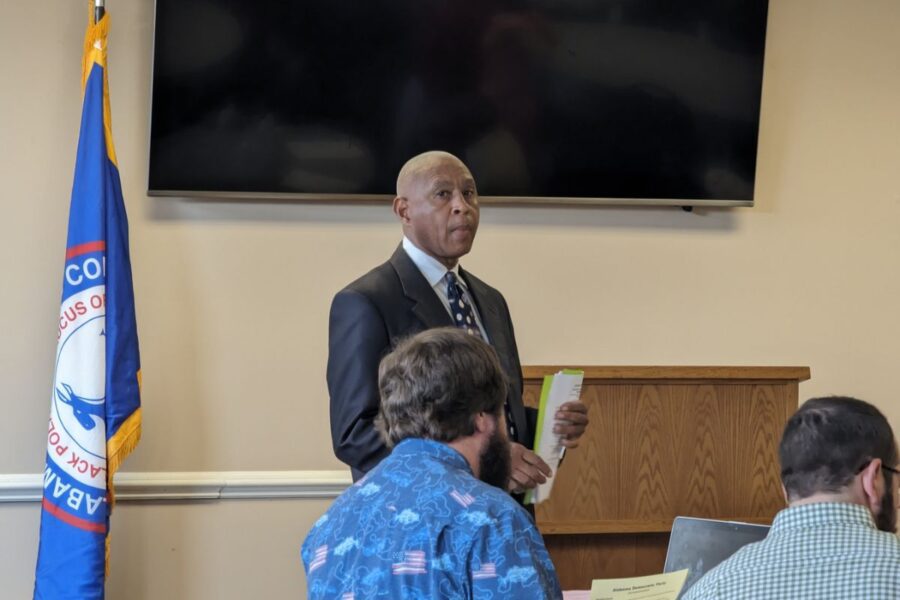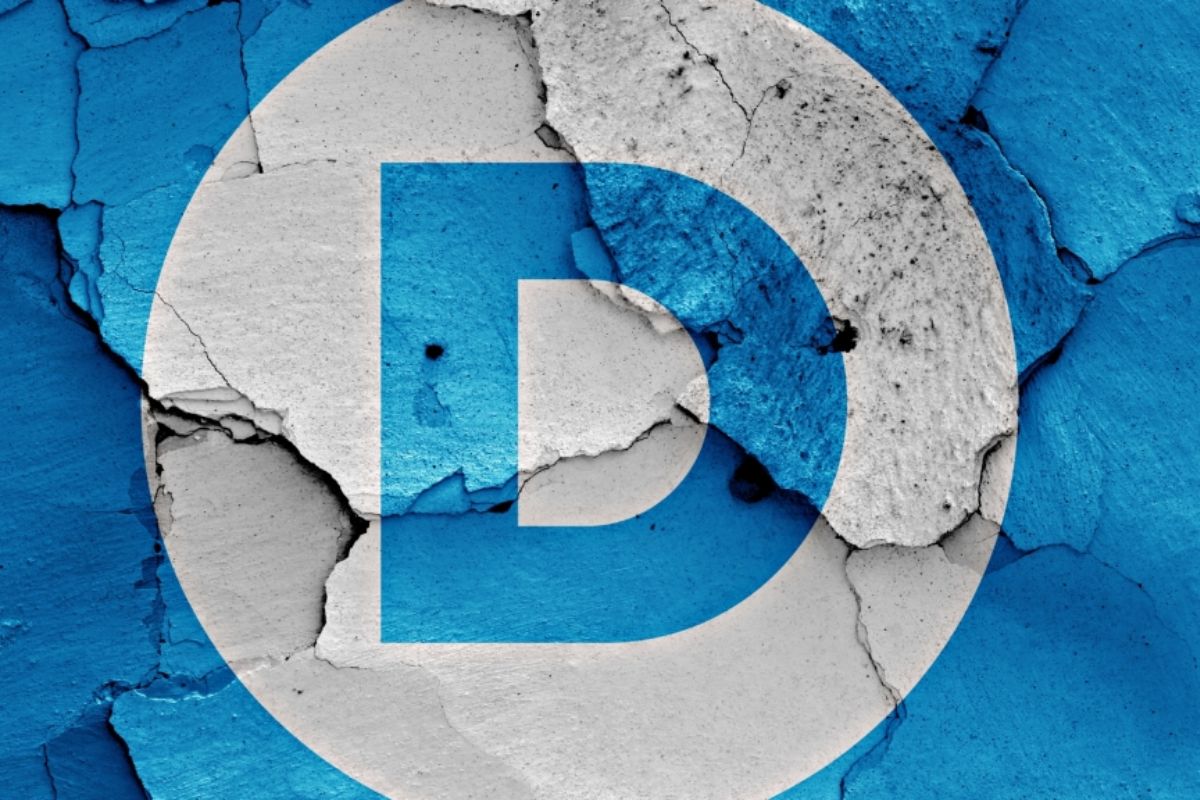Alabama Democrats Take a Positive Step: The Alabama Democratic Party (ADP) has recently taken a significant step towards unity by approving new bylaws aimed at bringing the party together.
This move comes after a series of internal conflicts and leadership changes that have plagued the party in recent years.
While the approval of the bylaws is a positive development, there are also controversial aspects that have sparked criticism, particularly regarding the exclusion of the Disability Caucus.
However, despite the challenges, there is a sense of optimism that these new bylaws will change the trajectory of the party and pave the way for a more cohesive and inclusive future.
The journey towards party unity has been a long and tumultuous one, marked by interventions from the Democratic National Committee (DNC) and a history of internal conflicts.
As such, it is crucial to delve deeper into the details of the bylaws and their potential implications to fully understand the implications for the Alabama Democratic Party moving forward.
Key Takeaways
- The Alabama Democratic Party’s State Democratic Executive Committee has approved new bylaws, indicating a clear consensus among committee members.
- The new bylaws aim to address internal conflicts and promote unity within the party, establishing a framework of rules and regulations to create a more inclusive environment.
- The crafting of the new bylaws involved a collaborative effort, with input from attorney Ben Harris helping shape the compromise and bridge the gap between different factions within the party.
- While the exclusion of the Disability Caucus in the new bylaws has sparked criticism and raised concerns about inclusivity, there is still a sense of cautious optimism within the party, as the inclusion of various caucuses and grassroots engagement fosters diversity, inclusivity, and unity.
Significant Step towards Unity: ADP Approves New Bylaws
The approval of new bylaws by the Alabama Democratic Party’s State Democratic Executive Committee marks a significant step towards achieving unity within the party. With a vote of 115-32, this decision signals a clear consensus among committee members, highlighting a shared commitment to overcoming the internal strife that has plagued the party in recent times.
The adoption of these new bylaws demonstrates the party’s dedication to addressing the conflicts that have hindered its progress over the past year. By establishing a framework of rules and regulations, the party aims to create a more cohesive and inclusive environment, fostering greater cooperation and collaboration among its members.
This move not only sets the stage for a more united front but also signifies a collective effort to strengthen the Alabama Democratic Party’s position and effectiveness in future political endeavors.
Crafting Compromise: Bylaws Aimed at Unifying the Party
Following the approval of new bylaws by the Alabama Democratic Party’s State Democratic Executive Committee, a collaborative effort has been made to craft a compromise aimed at unifying the party.
The bylaws, crafted with input from attorney Ben Harris, represent a significant step towards internal cohesion within the ADP. While they may not be considered perfect, they have the potential to bridge the gap between different factions within the party.
This compromise is crucial for the ADP as it seeks to consolidate its base and present a united front to voters. The collaborative nature of the bylaws reflects a willingness to listen and find common ground, which is essential for any political party to effectively govern and advocate for its constituents.
Controversial Aspects: Criticism Over Disability Caucus Exclusion
Controversy arises over the exclusion of a caucus for members with disabilities in the newly approved bylaws of the Alabama Democratic Party. Despite the positive step of reaching a consensus on the bylaws, the decision to leave out a caucus for individuals with disabilities has sparked criticism.
Former chairman Josh Raby has spoken out against this exclusion, deeming it a ‘shame’ and highlighting the need for equal representation and inclusion within the party. The absence of a disability caucus raises concerns about the party’s commitment to addressing the needs and concerns of this marginalized group.
The exclusion of the caucus also runs counter to the party’s goal of unifying its members and promoting diversity. This controversy highlights the ongoing struggle to ensure inclusivity and representation for all individuals within the Democratic Party.

ALSO READ: Alabama Democrats 2024 Agenda Objectives
Optimism Amidst Criticism: Changing Trajectory of the Party
Despite the concerns raised over the exclusion of a disability caucus, there is a sense of cautious optimism within the Alabama Democratic Party regarding the changing trajectory of the party. While critics argue that the exclusion undermines the party’s commitment to inclusivity, others believe that the party’s recent steps signify a positive shift towards progress and unity.
The following three factors contribute to this sense of optimism:
- Increased diversity: The party’s recent efforts to include caucuses representing various communities, such as Black, Latino, and LGBTQ+, show a commitment to amplifying marginalized voices and fostering inclusion within the party.
- Grassroots engagement: The party’s focus on grassroots organizing and community outreach has energized supporters and brought new voices into the political process. This increased engagement is seen as a sign of a revitalized party.
- Uniting against shared goals: Despite disagreements on certain issues, party members are finding common ground on key progressive goals, such as expanding healthcare access, addressing climate change, and fighting for social justice. This shared commitment to core values is fostering a sense of unity and purpose within the party.
From Leadership Changes to DNC Intervention: A History of Internal Conflicts
Over the past five years, the Alabama Democratic Party (ADP) has experienced a series of internal conflicts, characterized by leadership changes and intervention from the Democratic National Committee (DNC). In 2019, the ADP underwent a mandated leadership change, with Nancy Worley being replaced by Chris England as the new chair. This change was aimed at addressing concerns of mismanagement and lack of transparency within the party.
Additionally, new caucuses were established to promote inclusivity and diversity within the ADP. However, despite these efforts, the party continued to face challenges that led to the intervention of the DNC. The DNC stepped in to address issues of party structure, alleged voter suppression, and lack of fair representation. These conflicts highlight the need for internal reform and unity within the ADP.
| Year | Conflict | Resolution |
|---|---|---|
| 2019 | Leadership change due to mismanagement and lack of transparency | Nancy Worley replaced by Chris England as chair |
| 2020 | Allegations of voter suppression and lack of fair representation | DNC intervention to address structural issues |
| 2021 | Continued challenges and conflicts within the party | Approval of new bylaws as a potential step towards resolution |
Conclusion Of Alabama Democrats Take a Positive Step
The approval of new bylaws by the Alabama Democratic Party is seen as a significant step towards unity within the party. Despite the controversy surrounding the exclusion of the Disability Caucus, there is optimism that these changes will help change the trajectory of the party.
This development comes after a history of internal conflicts, including leadership changes and intervention by the Democratic National Committee.
Overall, the bylaws aim to unify the party and foster a more cohesive and inclusive environment.
Our Reader’s Queries
Is Alabama State Democrat or Republican?
Alabama is currently recognized as a stronghold for the Republican Party, maintaining dominance in both federal and state positions. However, Democrats still hold a narrow majority in various local offices, including sheriffs and county commissioners.
Who is over the Democratic Party in Alabama?
Alabama Democratic Party:
– Chairperson: Randy Kelley
– House Minority Leader: Anthony Daniels
– Senate Minority Leader: Bobby Singleton
– Headquarters: 501 Adams Ave., Montgomery, AL 36104
Was Alabama ever Democratic?
Alabama, a socially conservative state in the Deep South, was historically controlled by the Democratic Party. It predominantly supported the Democratic Party from its inception in the 1820s until the 1960s, a period that witnessed a significant shift during the Civil Rights Movement.

